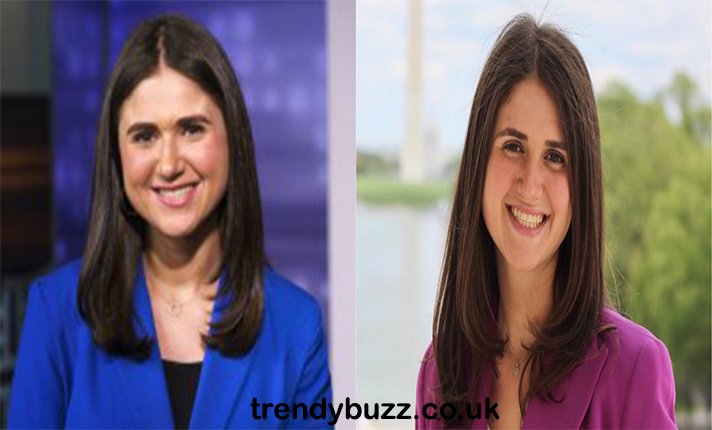Who is Mychael Schnell?
Mychael Schnell is an American journalist known for covering Congress. She rose through college media and internships into national reporting roles and has appeared frequently on broadcast outlets to discuss Capitol Hill developments. Schnell is a congressional reporter whose bylines and TV appearances focus on the House of Representatives and federal oversight matters.
What we know about her professional life
Schnell graduated from the George Washington University’s School of Media and Public Affairs and built experience with campus media and national news internships before joining outlets that produce coverage of Congress. She is active on social media and maintains a professional presence where readers and viewers can track her reporting, concise analysis, and breaking updates. Her employer listings and speaker bios summarize the beats she covers and the topics she is asked to explain on camera.
Career highlights and public appearances
You can find multiple on-camera appearances and segments where Schnell previews committee hearings or explains breaking developments on Capitol Hill. C-SPAN hosts a number of her segments that document the specific hearings she previewed and her reporting cadence. She has also appeared on other broadcast panels and podcasts that profile reporters and their beats. One lighter note from a conversation-style episode mentions her interest in solving Rubik’s Cubes, which gives a glimpse of personality outside the newsroom.
Is Mychael Schnell married?
Short answer: there is no reliable public evidence that Mychael Schnell is married. A search of reputable news archives, public-facing biographies, and her own professional profiles shows no mention of a spouse, wedding, or marriage announcement. Several recent biographical pages that collect publicly available information explicitly state she is not married or note that she keeps her personal life private. That consistent absence across employer materials, industry profiles, and video archives is the basis for the cautious conclusion below.
How reporters and public figures handle privacy
Many journalists who cover politics make a deliberate choice to keep personal relationships out of the spotlight. That boundary helps maintain professional independence, reduce intrusive attention, and keep focus on reporting rather than private life. Schnell’s public-facing posts and profiles emphasize her work and interests rather than a catalog of private relationships. This pattern is consistent with other reporters who balance visibility with personal privacy.
Where the information and the gaps come from
Most reliable information about a reporter comes from employer bios, broadcast archives, interviews, and verified social accounts. C-SPAN and other archives host video appearances that document her reporting, and industry sites summarize her career trajectory. Aggregator and fan sites often reuse that material and sometimes add speculative details. When aggregators do not find a spouse listed, they typically mark the subject as unmarried, but that absence is not the same as definitive proof that someone is or is not married.
Why absolute certainty is hard
Saying there is no evidence is different from saying definite proof exists that someone is not married. People may marry without making a formal public announcement. Smaller local records or private social posts can exist without being captured by national media or biography aggregators. Responsible writing avoids categorical claims about a person’s private life unless confirmed by a direct statement or a clear public record. That is why careful phrasing matters in profiles and reporting.
Practical steps if you want to verify for yourself
If you need a definitive answer, check these dependable channels: an official statement from the person, a verified profile maintained by their employer, reputable news organizations that do original reporting, or public records where it is lawful and appropriate to look. For Schnell, follow her verified social accounts and employer listings, monitor reputable outlets that cover media people, and consult broadcast archives where her on-camera appearances are preserved. These steps minimize reliance on recycled biographies and rumor.
A short suggested phrasing for publishing
If you must include this detail in a story, use a cautious, sourced line such as: “As of [today’s date], there are no public records or verified reports identifying Mychael Schnell as married. Her public profiles and employer bios do not list a spouse.” Adding a citation to a professional bio or an archived appearance is good practice. This phrasing is transparent and avoids making an unsupportable definitive claim.
A note on rumor and small websites
The internet is full of short biographies that copy the same facts. Those pages can be useful for background but sometimes include inconsistent or unverified details about age, family, or relationships. When multiple high-quality sources converge on a fact, that carries more weight than a single aggregator page. I recommend prioritizing primary sources and established outlets over fan compilations.
Why this question matters
People ask about marital status for different reasons. In the context of political reporting, personal relationships sometimes matter when they are relevant to coverage or could present conflicts of interest. For most readers, the stronger signals are a reporter’s transparency about potential conflicts and the quality of their sourcing. In Schnell’s case, the public record is stronger on the professional side and light on personal detail.
Conclusion
At present, available public sources do not identify Mychael Schnell as married. Reliable professional sources emphasize her role reporting on Congress and document frequent TV and radio appearances. Biographical aggregators that attempt to list personal details either omit a spouse or note that her private life is kept out of the public eye. If Schnell chooses to make her personal life public, that would be the clearest confirmation. Until then, the accurate position is to report the absence of public evidence rather than make a categorical claim.
